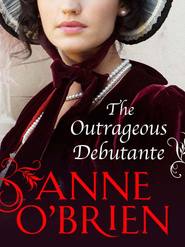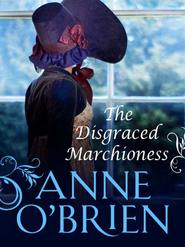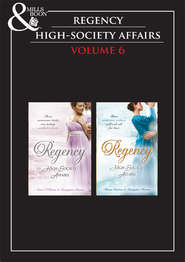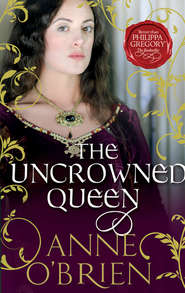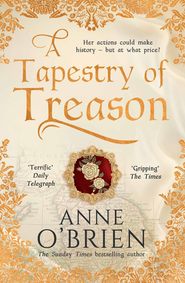По всем вопросам обращайтесь на: info@litportal.ru
(©) 2003-2024.
✖
Conquering Knight, Captive Lady
Настройки чтения
Размер шрифта
Высота строк
Поля
If Gervase Fitz Osbern had any thoughts on his intimate encounter with the de Longspey heiress, he was not saying, although close acquaintances might have considered him more taciturn than usual. By mid-day the disposition of his troops was to his satisfaction. Not the strongest of fortresses, with only a wooden palisade, but he could not fault the recent constructions of the Earl of Salisbury. The stone structure of walls and towers on the natural rock-based mound forming a cliff above the river would hold all but the most determined army at bay. He frowned at Sir Thomas de Byton’s busy figure in the distance. He did not like the de Longspey commander, but the man was capable and quick to carry out orders. Gervase’s lips twisted. Preferred the authority of a man to that of a woman, no doubt. Perhaps he could be left to hold the castle in Fitz Osbern’s name. So as the winter sun struggled to the meagre heights of mid-day, Gervase and his men-at-arms repaired to the Great Hall. The servant girls hastily commandeered from the village had been busy. Scents of roast meats and newly baked bread wafted across the bailey. Tables had been put up on trestles. His men crowded in to take their seats. Fitz Osbern, with Hugh accompanying him, walked forward to the dais where the two women waited.
Very pretty, Gervase acknowledged dispassionately, his second meeting of the day with Rosamund de Longspey confirming his first impressions in the bailey, and he was not a man immune to a pretty woman. There his quick assessment had taken in her vibrant colouring and glowing skin, the cold wind having brought a delicate tint to her face. The formidably straight nose, and the strikingly beautiful arch of her brows, spoke of nothing but trouble for himself. A woman, not a girl—the rumours had been wrong—who had far too much sense of her own importance. Came of growing up in the household of the Earl of Salisbury where her will would never have been thwarted, if he knew anything about it. But how she could be the child of the second marriage he could not guess. Nor did she follow the usual de Longspey colouring or feature … There was a little tug at his memory, but one that promptly eluded him. No matter. She was not to his taste. And the mystery of the de Longspey heiress aside, Rosamund de Longspey was here and claiming the castle as her own and, thus, she was a hindrance to his plans, which had otherwise worked to smooth perfection. Unexpectedly, uncomfortably, he was conscious of where her hand had pressed against his chest, of her slim figure held within the protection of his arms—even if she had felt the need to belabour him with her fists. Until she had fought against him, for just one heated moment, she had fitted perfectly against him so that he was conscious of every curve and flat plane of her flesh against his—he pushed the memory away. She would not be allowed to hinder him. His father’s ruined inheritance and sullied pride had both been superbly avenged. The castle was his—as would be the other two Marcher fortresses before the week was out.
He caught the condemnation in the lady’s eyes as she watched him approach from the high chair on the dais, read the contempt in the bold and supercilious stare. An uncivilised lout, was he? He quelled a sudden urge to laugh, well aware of his careworn and mud-splattered appearance. He must look exactly that—a border robber without finesse. She doubtless saw him as a penniless adventurer, boorish and illiterate, with nowhere to call his home but some squalid fortress of mud and timber. Now this lady was quite a different cauldron of eels, and had dressed for the occasion. And he’d wager she’d done it deliberately. A vixen, was the Lady Rosamund. The silk gown with its embroidered edgings to hem and sleeves, the veil secured by a matching embroidered filet were completely impractical for life in such a fortress on the far-flung edge of the kingdom. Yet the deep green enhanced the glowing translucence of her skin, the intense colour of her eyes, the rose-pink of her pretty mouth … Gervase Fitz Osbern breathed deeply and brought his wandering attention back into line.
She was simply a problem that he must solve, a vixen to be turned out of her lair. So she had dressed to put him at a disadvantage, had she? As she had, standing on the dais before him, the advantage of height over him. Well, he could change the latter if he could do nothing about the former. He came to the dais, stepped up, and halted before this unlooked for problem to be solved. And it struck him as he glared down into the beautiful face. Despite the flash of wrath in her eyes and the challenge to his authority in her very appearance, if he were not careful he might just feel a need to … well, to protect her, he supposed.
Rosamund de Longspey barely reached his shoulder.
His thick lashes hid a sudden gleam in his eye. The lady would get no protection from him, however decorative or vulnerable she might appear. His first priority, very simply, must be to get her out of his castle.
Rosamund had set the scene carefully. She had deliberately taken the lord’s high-backed chair, the only such chair in the Hall, to stamp her authority on the proceedings. As it had given her great pleasure to oust Thomas de Byton from his habitual seat and force him to take a more lowly stool, now it would give her equal satisfaction to do the same to Fitz Osbern. She watched him approach, never once taking her eyes from his face. If he was aware of her cunning handling of the occasion, he gave no recognition of it. He turned his head to exchange some comment with the other knight who had arrived with him. So she took the time to re-appraise him. Well! He had not combed his hair, but had at least used his fingers to give it some semblance of order. He might have brushed his clothes free of the worst of the mud and had abandoned his cloak, although he still wore sword and dagger, but his boots needed more than a cursory clean. He still looked like a marauding brigand.
She rose slowly to her feet.
The knight halted before the dais, bowed with token good manners to the two women, then stepped up, almost planting his mired boots on the edge of Rosamund’s silk gown. Intimidatingly close to her, a menacingly looming figure, Rosamund found that she had to fight not to step back. She held her ground, but the knight merely dragged forward a stool and sat without comment, without courtesy, even before she and her mother had taken their own seats.
‘Ladies.’ He swept the pair with an indifferent and preoccupied gaze. ‘Let me make you known. I am Gervase Fitz Osbern. This is Hugh de Mortimer.’
Rosamund sat, inclined her head, very much the great lady. Her fears were justified. They were nothing more than border lords, both of them. No better than the leaderless rabble who preyed on the unwary. Nothing to compare with the sophistication of the noble de Longspeys and those who visited Salisbury from King Henry’s royal court. Thus there was a touch of arrogance in her cool reply.
‘I am Rosamund de Longspey. Let me make you known to my mother. Lady Petronilla de Longspey, Dowager Countess of Salisbury.’
‘We welcome your hospitality, lady. Smell’s good after a morning’s work.’ It was de Mortimer who responded, rubbing his hands together, his first words for Rosamund, but then his interest centred on the widow. ‘I knew your husband a little, my lady. I last met him at the coronation of King Henry four years back. I heard of your loss. You must regret his untimely death.’
‘Yes. Thank you. It was unexpected.’ The Countess accepted the condolences with unruffled grace.
‘I thought your daughter must have been younger. That you had not been married to Salisbury for so very long.’ There was a decided twinkle in de Mortimer’s eye. ‘I did not think you old enough to have a daughter of marriageable age herself.’
To her astonishment, Rosamund watched her mother’s face grow pink, her eyes hidden by a down-sweep of fine lashes. Rosamund did not think she had ever seen her mother react in such a charmingly self-conscious manner. But Petronilla’s reply was quite composed as she saw fit to explain. ‘Rosamund is not of Salisbury’s blood, my lord, but my daughter of my first marriage to John de Bredwardine. I was married at a very young age, you see. It is simply that she took my lord of Salisbury’s name on my marriage. Earl William … well, he insisted on it.’
‘I see. You have my sympathies, lady.’ De Mortimer’s response was brusque in words, but gentle in tone. ‘As I recall, the Earl was always a man to get his own way.’
Petronilla smiled hesitantly. ‘Indeed, sir, I …’
Rosamund could wait no longer. She must stake her claim to her position in this castle immediately. With a stern glare at her mother, who promptly lapsed into a flushed silence, Rosamund gave a signal to her steward, Master Pennard, to begin the meal. Jugs of ale were brought in, the large platters of food. Master Pennard, with weighty ceremonial, carried in the lord’s goblet, a poor pottery affair with a chipped edge. Rosamund watched with narrowed eyes. To whom would he present the goblet? The steward hesitated. His glance edged nervously from one to the other, then, with supreme tact, placed it with a little bow before her. Without expression, Rosamund inclined her head at the minor victory, then turned her attention to the man who sat beside her. He was already watching her with a sharp awareness in his eyes.
‘We have much to discuss, sir.’ She addressed herself directly to Fitz Osbern, who began to apply himself to the meal with enthusiasm after such an active morning. He was already tearing apart a circular loaf of bread, when he looked up.
‘There’s nothing to discuss, lady, as I see it. Except for your imminent departure from this place. I have ordered your horses and your travelling wagon to be made ready at first light tomorrow morning. It’s too late now—it’ll be dark within two hours. First light tomorrow will enable you to reach Hereford with comfort during the day. And then you can travel on to Salisbury at your leisure.’
Rosamund stared her amazement. So immediate. So damnably peremptory! So unfeeling of her plight. She leaned forward. ‘I think you do not understand, sir. This is my inheritance from Earl William for my dower. I have all the legal documents to the land.’
‘But as I explained, the castle was stolen by Salisbury from my father. So if we are talking legality here, the castle is mine.’
‘And you would actually turn me out?’
Unable to sit calmly, Rosamund stood, forcing Fitz Osbern to look up. Their eyes met and held, fiery green locked with wintry grey, with no understanding between them. Fitz Osbern raised his shoulders and turned his attention back to a steaming platter of roast mutton, drawing his dagger from the sheath at his belt.
‘Yes,’ he stated. ‘The accommodation is limited here. There’s only one private chamber. It’s not convenient to me for you to occupy it.’
‘There are five towers around the court, all with chambers, all suitable! I know. I slept in one last night.’ Her face paled and her heart thudded, but whether with anger at his presumption or the sudden fear that he had the power to do exactly as he threatened—to turn her out—she was unsure.
‘This is no place for you, lady.’
‘I will not go.’
He turned from the mutton with a deep sigh, giving her his full attention, making no attempt to curb his impatience as he clapped his dagger down on the board. ‘I am giving you no choice. I will send an escort with you as far as Hereford, if that is what you wish, if you fear to travel. Although you got yourself here unaided without difficulty … From Hereford you can make your own way home. I expect you’ll be well received at Salisbury.’ He shrugged again as if it did not matter unduly to him.
‘But I cannot go back there.’ Her voice fell to almost a whisper as the uncertain future beckoned with all its horrors.
‘Why not? Would your brother not receive you?’
‘Yes. Of course he would. It’s not that …’
Rosamund’s ability to muster an argument vanished as the image of Ralph de Morgan came forcibly into her mind. If she returned to Gilbert’s jurisdiction … For a painful moment she swallowed, closed her eyes against the corpulent figure of Ralph with his ageing and unwashed body, suppressed a shudder. Marriage to him would be a thing of unending horror, of disgust. Her only knowledge of marriage was from the sad experiences of her mother, always discreet, but her sufferings were clear enough. One husband, her own father, a disgracefully uncouth knight with no polish and less breeding, who had treated Petronilla little better than a servant in his Hall. The other had all the polish and style any woman could want, but had been as cold as a fish, without the ability to love. Petronilla had had a lifetime of unhappiness. Did Rosamund want that? A life of hidden tears, of carefully controlled emotions that no one might guess at? A loneliness that was bone deep? All this would be hers. And then, worse then all the rest, there was the loathsome rankness of the man she would be forced to marry. She could not tolerate that. But nor could she explain why it was impossible for her to leave Clifford. It would destroy her pride to have this man look at her with pity in his face. Rosamund shook her head.
‘I won’t go,’ was all she could find to repeat. And, clenching her skirts, would have stalked from the dais except that Fitz Osbern, with the reflexes of a hunting hawk, put out a hand as she passed and grasped her wrist, firm as a vice. His voice was as harsh as his grip; once more his predatory eyes fixed on her face.
‘Lady. Do not mistake my intent. You’ll leave tomorrow if I have to lift you bodily into the wagon with all your possessions. Be ready at daybreak.’
Without success, Rosamund tried to yank her wrist free. The dread of the absent Ralph was immediately replaced by hatred of the terrifyingly present Fitz Osbern, and it drove her into speech, without thought or consideration for the outcome. With an impulsiveness that Lady Petronilla recognised all too well and made her heart sink, Rosamund uttered the first thought that came into her head.
‘If you do that, my lord, if you use physical force against me, I shall camp outside these gates until you either let me in again or I die from exposure to the rain and cold.’
‘Ha! A foolish idea! The empty threat of a thwarted child who wants her own way!’ A bark of laughter shook him, full of sheer incredulity. ‘How would you think of so outrageous an action? You won’t persuade me, whatever empty threats you make. I warned you not to resist me, did I not?’
‘Rosamund …’ murmured Lady Petronilla, who saw Fitz Osbern’s dark brows snap together and immediately dreaded the outcome.
‘No, Mother.’ Rosamund did not spare Petronilla even a glance. All her attention was centred on this man who would rob and ridicule her. ‘I will not be disinherited by this man. I will not be sent away from what is my own.’
‘Of course you will,’ Fitz Osbern replied. ‘When you have taken time to think of the advantages of your home, you’ll see the wisdom of it. A border fortress is no place for a woman alone, so you’ll be a sensible girl and take yourself back to Salisbury. In a month you’ll thank me for showing you the error your pride might have forced you to make.’ A condescending smile touched the firm lips. Which made matters even worse.
‘Oh, no!’ She braced her wrist against his powerful fingers, but he did not let go. ‘I shall sit outside my gates for as long as it takes. And if I do indeed die of cold, my death will be on your head. Are you willing to risk it, my lord?’ Her mouth curved with the challenge.
Which brought him up short. His fingers tightened. ‘Don’t question my authority, lady!’
‘Don’t you push me into defiance, my lord!’ And, snatching her wrist from his hold, Rosamund de Longspey swept from the dais and up the stairs to the solar without a backward glance. They watched her depart, her head held high. Until her mother, after a moment of pregnant silence, stood to follow with an apologetic smile.
‘I think I should warn you, sir.’ Her calm eyes were austere as they rested on Fitz Osbern. ‘It is unwise to underestimate my daughter. She tends to do exactly as she says.’
‘She’ll not defy me,’ Fitz Osbern remarked.
‘I’d not wager on it,’ Lady Petronilla replied over her shoulder. ‘She can’t afford to allow you to win.’
And then the Marcher lords were alone.
‘I think Lady Petronilla’s right, Ger. The girl might just do it, you know. She’s in the mood to.’ Hugh watched the final departing twitch of silk skirts around the turn in the stairs with serious contemplation and the faintest smile of admiration. ‘Are you, as the girl said, indeed willing to risk it?’







